The unique health benefits of CBD oil have driven its immense popularity and growth around Australia. It’s now an invaluable part of many Australians’ daily routine for good health. Since CBD oil was legalised in 2021, this is now more true. You can now shop for it in stores places today (with some restrictions still applying). Why should you use CBD oil, though? To understand why, you must first familiarise yourself with CBD’s effects and advantages as a health product.
In particular, CBD oil offers you:
- Valuable therapeutic effects throughout both the mind and body
- A high degree of safety
- No psychoactive or addiction risks
- Scientifically proven, research-backed health benefits
- Excellent flexibility in what you use it for
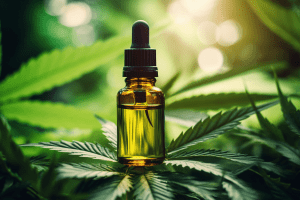
Many even use this product as a natural remedy and alternative to pharmaceutical medications like ibuprofen. You see all manner of individuals benefiting from it today:
- Everyday people, like workers or students, favour it for focus and mental energy
- Senior individuals find it great for arthritis aches and for reducing wrinkles
- Athletes swear by CBD for the sleep, recovery and muscle-soothing powers it has
- Some take it to target conditions like pain or anxiety directly
Not convinced? This guide to the benefits and uses of CBD oil might change your mind. You’ll get all the insights you need on:
- CBD oil’s effects (and why this matters)
- It’s health benefits for the mind, body and immune system
- Popular uses of CBD oil
Let’s jump right in!
Contents
Why Use CBD Oil? Understanding its Effects
Understanding the effects of CBD is fundamental to understanding why you might use it (due to its benefits). CBD has a ‘broad spectrum’ of powerful functions across the body, brain, and immune systems.
It stimulates several vital pathways:
- Endocannabinoid system (ECS): CBD’s most important effect is activating the ECS by binding to its receptors. This stimulates the body to make endocannabinoids (endogenous cannabinoids), which are incredible for healing. Endocannabinoids work restoratively in the body and brain, reducing inflammation, pain, and anxiety.
- Immune system: CBD also balances immune system regulation. It helps immune cells communicate, averting dysfunction. An example is CBD’s suppression of COx enzymes. Suppressing these enzymes reduces the proliferation of prostaglandins, which prevents excessive inflammation.
- Cognitive processes: CBD affects multiple receptors and neurotransmitter types in the brain. Stimulating them causes improvements in mood, focus, calmness and mental balance. Moreover, the cannabinoid is neuroprotective. Brain cells are protected from malfunctioning and getting damaged via these capabilities.
Think of CBD as a force of ‘balance’ in the body. It helps the body regulate more effectively, known as ‘homeostasis’ or maintaining a stable, regular internal state.

Receptors it Works On
How does CBD reinforce homeostasis so well? The answer is its versatility in interacting with widely varied receptor types.
Which receptors does it act on?
- Body: CBD primarily affects the CB2 cannabinoid receptors. These are in the muscles, skin, tissues, glands, and organs. They’re also located in the peripheral nervous system (this is why CBD can reduce pain from the nerves).
- Brain: The cannabinoid indirectly stimulates CB1 cannabinoid receptors, which benefits cognition. Additionally, CBD works directly on many brain receptors. These include the serotonin, glycine, GABA, glutamate, adenosine, and vanilloid (TRPV1) pain receptors.
- Immune system: CBD alters the production of signalling enzymes and proteins by acting on CB2 receptors in immune organs like lymph nodes. Cannabidiol also affects the function of T cells (germ fighters). How? By altering the activity of PPAR-Gamma receptors and mTOR proteins. Each influences T cell regulation.
It’s not entirely known how cannabinoids like CBD are so adaptable from a biological standpoint. Yet this adaptability makes them uniquely and comprehensively effective for improving health.
You now know CBD oil’s effects. Let’s move on to exploring its top health benefits.
What are the Health Benefits of CBD Oil?
Fundamentally, people buy and use CBD oil because of its rich and proven wellbeing benefits.
Its abilities encompass:
- Enhancing physical health
- Improving mental wellbeing
- Strengthening immune function
- Supporting cellular processes
- Balancing hormone and enzyme regulation
CBD oil can provide these benefits as a natural remedy (targeted at a chronic condition) or as a general-purpose health supplement.

Because there’s such a sizeable range of health benefits to detail here, let’s summarise them by category.
Body
When it activates CB2 receptors across the body, CBD unlocks some profoundly helpful physiological health benefits.
Chronic Pain
CBD blocks nerve pain signals that fire from nociceptors (pain sensors), the source of its analgesic (pain-reducing) advantages. It’s particularly effective for relieving neuropathic pain transmitted from peripheral nerves.

Dampening these uncomfortable sensations helps to:
- Reduce discomfort
- Limit soreness
- Put a stop to achiness
- Block irritation
Each of these contributes to greater peace of mind. Yet despite not being as strong as pharmaceutical painkillers (e.g. opiates or NSAIDs), CBD oil is safer for long-term use. This makes it better suited for managing chronic pain without the risk of becoming addicted to painkiller drugs.
Inflammation
In the body, CBD is vigorously anti-inflammatory. In other words, it settles and resolves immune system dysregulation, preventing it from degrading good health. It returns normalcy to the inflammatory response by adjusting the production of immune-regulating compounds.
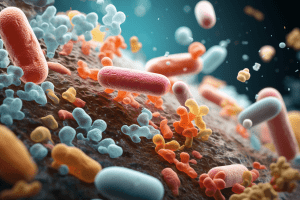
In particular, CBD is fantastic at inhibiting the overproduction of inflammatory proteins like prostaglandins and cytokines. Elevated levels of these compounds result in:
- Immune system chaos and disarray
- Chronic and often self-reinforcing inflammation
- Metabolism and hormones acting up
- Weakened health and Impaired wellbeing
It’s a root cause of many illnesses like atherosclerosis, rheumatoid arthritis and even some cancers. Proactively averting chronic inflammation that leads to these problems is a significant benefit that CBD offers.
Gut Health and IBS
The gut is a routine place where chronically elevated inflammation strikes many. Irritable bowel syndrome and disorders like colitis result from inflammation-related irritation in the gut’s lining. Thankfully, CBD can counteract these disruptive conditions.
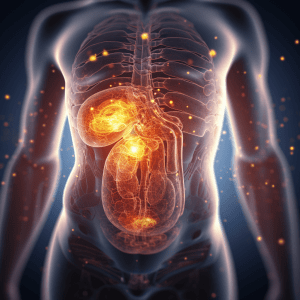
CBD oil works wonders for revitalising gut health and rebalancing the intestinal microbiome. Issues like:
- Gas and bloating
- Stomach cramping or aches
- Irregular, uncomfortable bowel movements
- Nausea
Often, these achy symptoms clear up soon after starting with CBD extract. Research has linked it to better gut motility and calmer, less irritable bowels. It could be worth incorporating into your digestive regimen if you need support.
Arthritis and Joint Aches
Combating joint aches and pains from arthritis is a renowned application of CBD. Notably, the cannabinoid doesn’t just dampen irritating joint soreness. CBD addresses the inflammatory cause of arthritis deep within joint tissues.

Here, it exerts soothing effects that calm down inflamed, achy cartilage. Relieving inflamed and irritated synovial sheaths is how CBD oil helps people with arthritis to recover:
- Better joint mobility and range of motion (less stiffness)
- Moving habits and exercise
- Quality of life and confidence
While it can sometimes be a game changer, the results people report can vary.
Blood Pressure and Heart
The cardiovascular system responds very positively to CBD. There are a couple of reasons why. Firstly, the cannabinoid lowers cortisol (the stress hormone) through its ability to calm down the mind. Because cortisol is a vasoconstrictor (narrows blood vessels) and strains the heart, suppressing it using CBD can strengthen heart health.

In addition, the cannabinoid is a vasodilator. It’s able to reduce blood pressure by opening up the blood vessels. For those with high blood pressure (hypertension), this can be hugely beneficial for minimising cardiac or stroke risks.
Period Pain and Endometriosis
CBD oil can often ease menstrual aches or pain from endometriosis. It achieves this via antispasmodic (muscle spasm suppressant) effects in the uterus muscles. Activating cannabinoid receptors in the pelvic region inhibits the irritating, painful cramps that frequently accompany periods.
Similarly, the capacity of CBD as an endometriosis remedy is promising. New research has revealed that its ability to stabilise hormones like progesterone while subduing inflammatory protein activity in the uterus tissue can minimise the severity of symptoms.
Weight Loss and Appetite
CBD can help decrease body fat and maintain a healthy weight. It accelerates the cellular process of ‘browning’ body fat (lipocytes). Browning fat stores make it easier for the body to ‘access’ and use them for energy. Furthermore, the cannabinoid can suppress appetite.
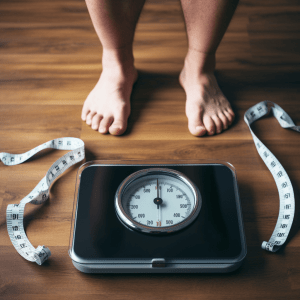
In the brain’s hypothalamus (which controls hunger), CBD alters the signalling of hunger hormone release. These hormones (which control hunger instincts) are less likely to malfunction and cause overeating. Lowering appetite through this mechanism assists in keeping weight off. These are some of the main ways CBD oil can help your body. But what does it offer for the brain and mind?
Brain
CBD is profoundly valuable for the mind, strengthening cognitive balance, concentration, and mood. The cannabinoid is probably most famous for its calming effects.
What are the mental and brain health benefits of CBD oil? Some are:
Stress and Anxiety
For stress and anxiety relief, CBD oil is perhaps the single best natural supplement option available today. It’s so effective for soothing anxiousness that many compare it to antidepressant and GABAergic drugs (e.g. Xanax) prescribed to treat anxiety disorders.

Unlike these drugs, however, CBD calms our thoughts naturally. How? One way is by downregulating the brain’s amygdala (which controls fear) and its sensitivity. In tandem, CBD curbs the stress response (fight or flight), which tends to be dysfunctional in people with anxiety problems. Put simply, it takes off the edge. Chilling out and relaxing becomes far easier.
Mood and Depression
Enhancing emotional state and elevating mood are other vital mental benefits of CBD oil. Similarly to depression medications like SSRIs, CBD raises the availability of the serotonin neurotransmitter. Serotonin controls how we feel.

Making it more abundant for neurons (brain cells) to use is fundamental to how CBD restores mental disposition. Beyond serotonin, the cannabinoid has notable powers to harmonise the GABA and glutamate neurotransmitters. Attuning and moderating these brain chemicals underpins the blissful, grounding state that CBD brings about.
Focus and ADHD
Even though CBD is not a nootropic, the use of CBD oil as a cognitive performance enhancer is surprisingly commonplace. Its popularity as a study and work aid likely stems from the clarifying mental acuity it delivers.
CBD’s calming properties are a huge plus in blocking distractions and concentrating. It has a growing base of users with ADHD for this reason. Anxious, racing thoughts or feeling highly strung (e.g. the mental challenges posed by attention deficit disorders) can make bouts of deep focus nearly impossible. A few drops of CBD is all it takes in many instances to keep these disruptive intrusions blocked out.
Migraines and Headaches
CBD can dampen migraine (and headache):
- Frequency (how often each occurs)
- Length (of each occurrence)
- Pain and symptom severity
These outcomes are a godsend if you suffer from debilitating headaches. A growing body of clinical studies is adding weight to this therapeutic effect of the cannabinoid. One thing they show is that it inhibits the degree of headache sensations that migraines afflict. CBD’s neuroprotective and anti-neuroinflammatory potential is likely behind this.
Defending brain cells from harmful excitatory activity is one mechanism it exhibits in suppressing migraine risk. The cannabinoid’s inhibition of pain receptors in the brain also contributes to headache symptom relief.
Sleep and Insomnia
Are you looking to get a better shut-eye? Adding CBD oil to your nightly wind-down repertoire is just what you need. It’s excellent for sleep in several ways. At night, CBD’s anxiety and stress-blocking potency are ideal to avoid sleep delays. This is especially true for anxious types who suffer from bedtime nerves, which can keep you awake.

Further, cannabidiol can aid the cognitive processes that control when and how we sleep. This includes fortifying circadian rhythm, REM sleep length, and sleep-wake cycle consistency. Use CBD oil before hitting the hay to feel more well-rested and refreshed.
Let’s shift gears and review some of the top purposes individuals take CBD oil today.
What is CBD Oil Most Commonly Used For?
There are two key reasons people use CBD oil. These are:
- Relief of particular health conditions (targeted usage) or;
- Improving wellbeing holistically (untargeted or ‘general purpose’ usage)
In other words, the product is excellent for just about anyone, from elite athletes at the bleeding edge of physical performance to elderly individuals with stiff joints from arthritis.
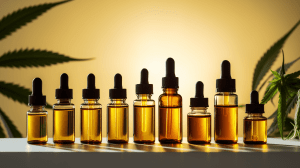
Let’s take a deeper look here.
Natural Remedy (Targeting Conditions)
Targeting the relief of frustrating health conditions by taking CBD oil is a top reason people seek it out. Some examples are:
- Using it for anxiety during intense workdays
- Consuming CBD drops pre-bed for insomnia relief
- Taking some oil when endometriosis pain begins to flare
For many conditions, CBD extracts can either replace or complement pharmaceutical interventions.
A drawcard of CBD oil versus heavier-duty pharmaceutical medicines is long-term safety. Compared to comparable drugs like NSAIDs or antidepressants, CBD’s risk profile is far more tolerable for most.
Many pharmaceuticals are harmful if you consume them for an extended period. They can also be incredibly addictive. Drugs like opiates that treat pain or depression suffer from this drawback.
While CBD won’t match these chemicals in overall potency or efficacy, its trade-off as a lighter-weight solution means fewer health dangers. Many consider this trade-off worthwhile. You must involve your doctor here, however. Get medical advice first if you’re tossing it up.
General Purpose Health Supplement
Already in top shape? You might still consider CBD oil. Healthy people are increasingly applying the extract as a ‘supplement’ for wellness. What are some use cases?
- Elevating sleep quality and depth for athletes seeking recovery enhancement
- Aiding in the maintenance of joint health for senior individuals
- Fortifying mental energy, concentration and focus in students or full-time workers
- Calming down stomach irritability and bolstering gut health
Think of CBD as a cherry on your ‘wellbeing’ cake. Adding it to your repertoire isn’t going to make you superhuman. But it can be a valuable filler for possible gaps in your supplementation approach.
Using it like this can also magnify results from endeavours like exercise, mindfulness and mobility. It’ll cover your bases as a support for sleep, less inflammation and accelerated recovery.
Conclusion
You now know CBD oil’s effects, health benefits and how it’s commonly used. This should make understanding why you might use it straightforward. Let’s quickly recap. The effects of CBD are extensive and varied due to its flexibility as a bioactive compound. It works on receptors throughout the:
- Endocannabinoid system
- Immune system’s signalling proteins and enzymes
- Brain’s receptors and neurotransmitters
Correspondingly, CBD activates pathways that provide a bounty of wellness advantages. These widespread benefits extend from:
- Strengthening your physical state by soothing pain, inflammation and metabolic processes
- Balancing your mental state via stabilising mood, stress, concentration and sleep.
There’s little doubt why so many individuals depend on this incredible extract. Typically, these people take CBD oil for:
- Relief from a target health problem (e.g. anxiety, arthritis or ADHD) or;
- As an all-purpose health booster (as an everyday supplement)
As these drawcards of CBD oil become more known, its upward trend in usage as a natural tool for vitality will undoubtedly continue.
References
- www.medicalnewstoday.com. (2020). CBD oil: Effects and side effects. [online] Available at: https://www.medicalnewstoday.com/articles/cbd-oil-effects.
- Woodcock, S. (2022). What are the Benefits of CBD Oil? Uses, Side Effects, and How to Take It. [online] GoodRx. Available at: https://www.goodrx.com/classes/cannabinoids/what-are-the-effects-of-cbd-oil.
- Anon, (2011). How CBD Works | Project CBD. [online] Available at: https://projectcbd.org/science/how-cbd-works/.
- Robinson2023-09-12T13:30:00+01:00, J. (n.d.). Biochemistry behind CBD’s anti-inflammatory effects points to new ways to treat inflammation. [online] Chemistry World. Available at: https://www.chemistryworld.com/news/biochemistry-behind-cbds-anti-inflammatory-effects-points-to-new-ways-to-treat-inflammation/4018066.article.
- Australian Journal of General Practice. (2023b). Medicinal cannabis. [online] Available at: https://www1.racgp.org.au/ajgp/2022/august/medicinal-cannabis.
- Farooqi, T., Bhuyan, D.J., Low, M., Sinclair, J., Leonardi, M. and Armour, M. (2023). Cannabis and Endometriosis: The Roles of the Gut Microbiota and the Endocannabinoid System. Journal of Clinical Medicine, [online] 12(22), p.7071. https://www.mdpi.com/2077-0383/12/22/7071
- www.mayoclinic.org. (n.d.). Examining the efficacy of CBD in patients with functional dyspepsia and normal gastric emptying – Mayo Clinic. [online] Available at: https://www.mayoclinic.org/medical-professionals/digestive-diseases/news/examining-the-efficacy-of-cbd-in-patients-with-functional-dyspepsia-and-normal-gastric-emptying/mac-20539034
FAQs
Of CBD oil’s lengthy list of health benefits, its anti-inflammatory powers are the most fundamental (i.e. ‘main’). Many, if not most, of its other advantages for blocking pain, improving metabolic function and supporting cardiovascular well-being result from this benefit. Inflammation (particularly chronic forms) is the hidden cause behind numerous bodily ailments. CBD’s capacity to prevent and manage it is why it’s so effective in alleviating common disorders.
While it won’t cure any disease, CBD oil can help relieve symptoms of some chronic conditions. Its effects on lowering chronic pain, calming inflammation, and putting the mind at ease make it ideal for this purpose. In many cases, it can function in a complementary manner to other treatments, improving overall quality of life. For instance, CBD oil for arthritis often returns some degree of joint mobility, movement and ability to exercise. Keeping symptoms under better control returns comfort and confidence.
CBD isn’t a ‘supplement’ despite commonly being called one. The reason for this is that cannabidiol (i.e. ‘CBD’) as a cannabinoid isn’t a ‘dietary’ compound. It’s different from multivitamins, protein powders, herbal remedies or electrolyte drinks. Each of these is classified as a dietary supplement because they have at least one dietary nutrient. For example, whey protein powder contains amino acids targeted at muscle recovery. CBD isn’t a nutritional aid like this. However, it is used similarly to traditional supplements as part of ‘daily protocols’.
There are a few illnesses that tend to respond well to CBD. Clinical evidence of its efficacy for each disorder tends to vary, with its most proven medical application being epilepsy treatment (inhibiting seizures). It’s applied primarily for:
Rheumatoid arthritis (targeting inflammation). Osteoarthritis doesn’t improve from CBD usage.
Anxiety and Depression (as an anxiolytic and mild antidepressant).
Neuropathic pain (e.g. from multiple sclerosis)
Inflammatory skin and bowel problems such as IBS, colitis, psoriasis or eczema.
Sleep Disorders (e.g. insomnia or RBD)
A medical assessment (from a licensed practitioner) is critical to judge when and how CBD can be used for these diseases. Don’t take CBD oil without running it by your doctor first. Other treatment avenues are often much better suited. The risks involved in self-diagnosing or medicating are not worth it. Get medical advice first.
CBD oil’s most common usage purpose is pain relief. The extract has analgesic (pain-reducing) mechanisms that are superb at shutting off (some) discomforting pain feelings. Note that it’s not particularly helpful for more severe pain levels.
